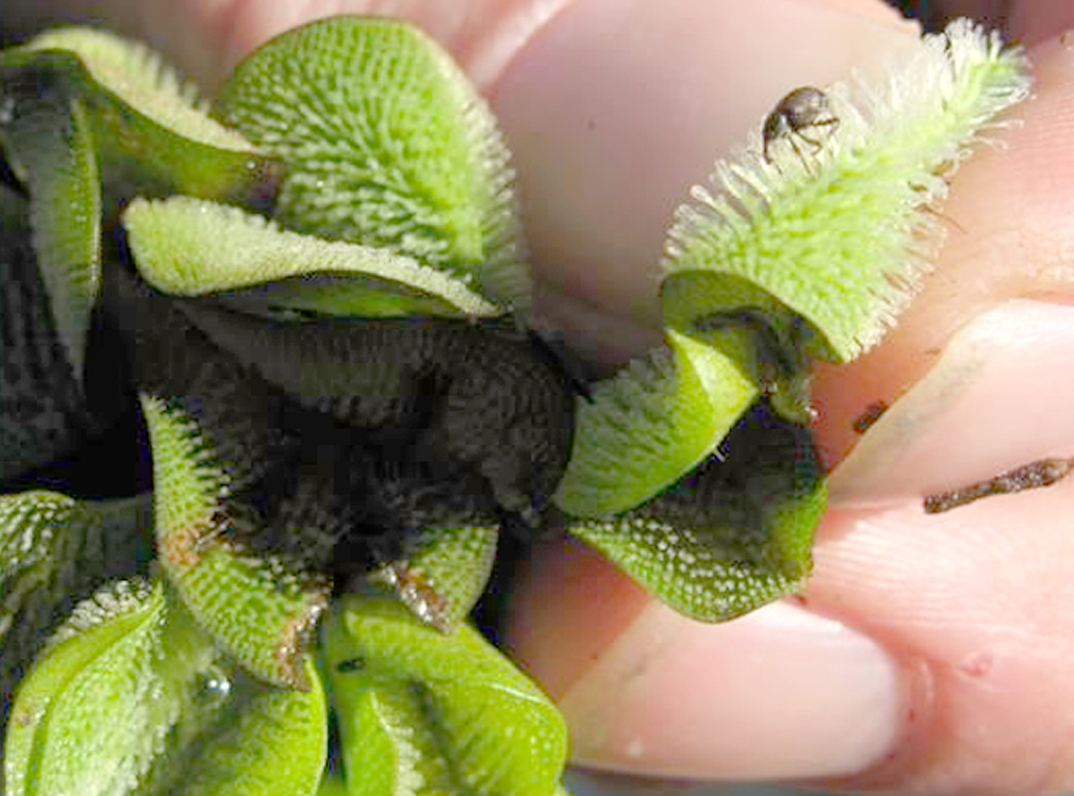Lake area to see decrease in harmful plant
Earlier this month, the Louisiana Department of Wildlife and Fisheries released a report that the freezing temperatures across the state may help kill off giant salvinia, “an invasive aquatic plant overtaking many of the state’s freshwater systems.”
We spoke with Pete Camp, president of the Bistineau Foundation, to see how the freezing weather in the area might affect the salvinia population in Lake Bistineau.
“The past few winters had been very mild, which allowed the salvinia to survive over winter,” Camp said. “This led to large amounts of salvinia present on the lake in early spring when the growing season began. The cold weather events that we have had this year so far will definitely help reduce the amount of salvinia coverage on the lake. Extended periods of sub-freezing temperatures will damage and hopefully kill the weed.”
Camp said salvinia is harmful because it is a weed that spreads rapidly and has the ability to completely take over a lake.
“During the prime growing season on Lake Bistineau, salvinia will double in mass every three to five days,” he said.
“Salvinia floats on the surface and forms large mats which will blow around with the wind.”
Salvinia was first discovered on Lake Bistineau in 2006, and since then Camp said it has been necessary to lower the lake annually to prevent salvinia from taking over.
“It is important to keep salvinia under control so that the lake can be utilized by all user groups: fishermen, recreational boaters, duck hunters, property owners, and so on,” he said.
Last year, the LDWF spent over $800,000 spraying chemicals to kill salvinia on Lake Bistineau alone. Luckily, the weather has stepped in to help.
“Most of the salvinia on the lake appears to be very brown and damaged,” Camp said. “It will take a couple of weeks for the dead salvinia to sink, and it can then be determined how much survived.”
In addition to chemicals and harsh weather, another enemy of salvinia is the salvinia weevil, something the Bistineau Foundation has kept well stocked in the lake for three years.
“The weevil is the only natural predator of salvinia,” Camp said. “One issue with the weevil is that it is not cold weather tolerant. The winter temperatures of north Louisiana will at times get low enough to kill the weevil.”
Camp said the temperatures that kill the weevil also kill salvinia, which is the purpose of the weevil in the first place. Even if the weevils survive, salvinia is their only food source, and without it they will die.
“We have had weevils survive the past two winters,” Camp said. “It is too early to tell if any weevils survived this cold weather. We will begin raising more weevils as soon as possible to restock the areas where salvinia survived. It does not matter to us if the weevil kills the salvinia or the cold weather kills it, as long as it gets killed.”
Camp said at the end of the day, the cold weather will reduce salvinia on Lake Bistineau but not eliminate it.
“I expect in a few weeks the lake will look as good as it has in years, but this is no time to relax and let our guard down,” he said. “This is a time to stay out in front of the growth to maintain control. Mother Nature has done her part. Now it is time for everyone to do their part. The Bistineau Foundation will definitely be doing everything possible to assist LDWF in their efforts to keep Lake Bistineau beautiful.”





